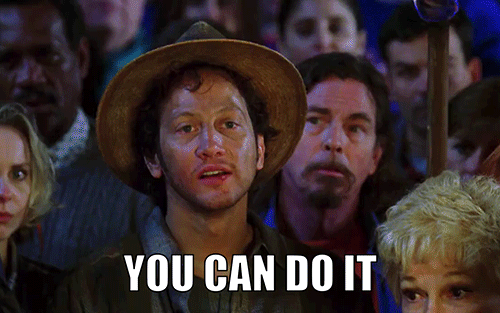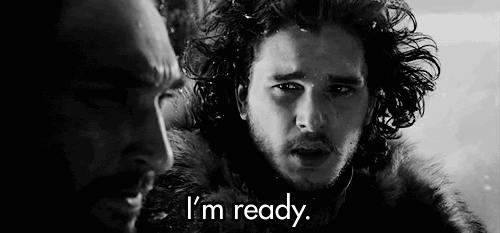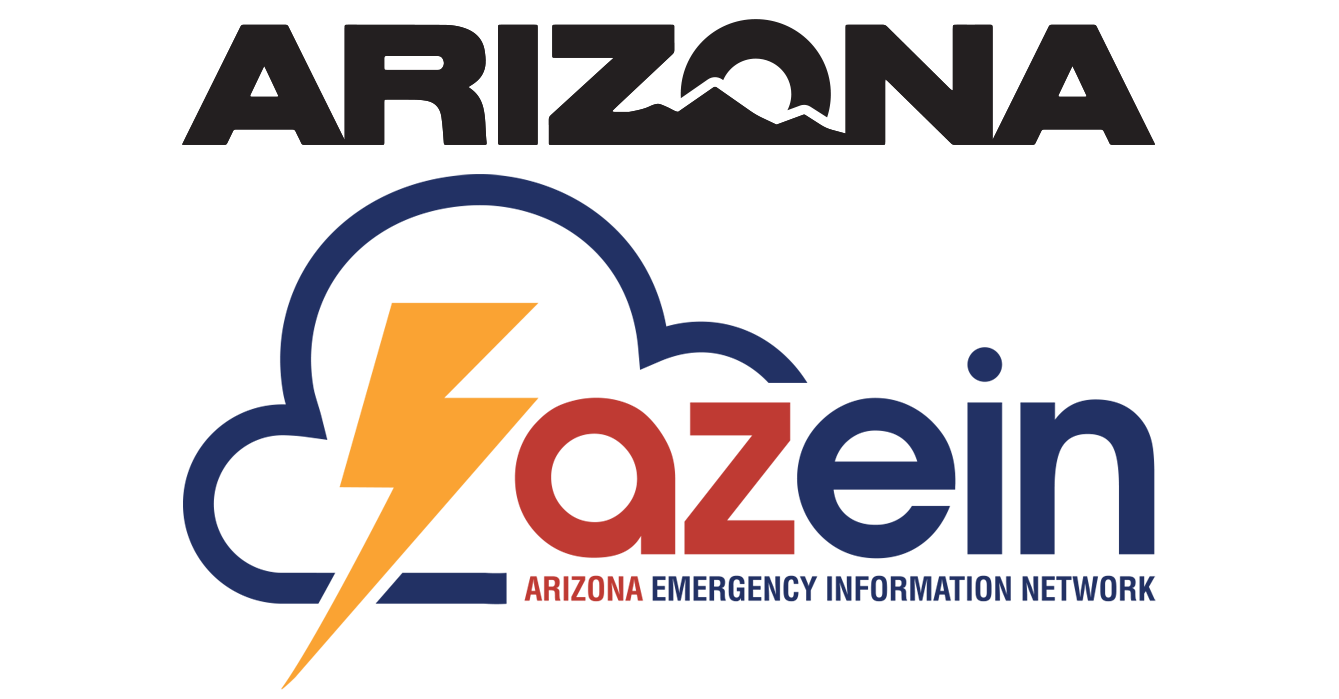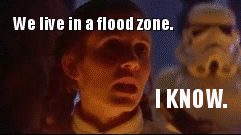It Doesn't Take a Genius
LISTEN to the It Doesn't Take a Genius radio PSAs:
Emergency preparedness is as much about having confidence in your ability to prepare as it is about making preparations. Those who acknowledge that an emergency could happen and that they can mitigate its impact by making plans, building kits, etc. are more likely to prepare.
Consequently, the Arizona Department of Emergency and Military Affairs (DEMA) has made it a goal to 1) inform the public about regional hazards; 2) assure Arizonans of their ability to mitigate against, prepare for, respond to and recover from disaster; and 3) empower people with the know-how to make a plan, build a kit, be informed and inspire others. And when appropriate, we try to make mission with a sense of humor.
 It Doesn't Take a Genius parodies the simplicity of basic emergency preparedness. We want all Arizonans to know they needn't be a survival expert, have an engineering degree, or invest a lot of time and/or money to Make a Plan, Build a Kit, Be Informed and Inspire Others. Everyone is capable of successfully preparing for the impacts of a disaster.
It Doesn't Take a Genius parodies the simplicity of basic emergency preparedness. We want all Arizonans to know they needn't be a survival expert, have an engineering degree, or invest a lot of time and/or money to Make a Plan, Build a Kit, Be Informed and Inspire Others. Everyone is capable of successfully preparing for the impacts of a disaster.
"It doesn't take a genius to prepare for emergencies, just the smarts to know you should."
For many people getting prepared is a good idea they plan to get around to someday. Some people consider themselves too busy with work, friends and family to prepare. Others think they'll never be in a situation where they'll need a plan or live out of an emergency supplies kit. Regardless of peoples' stated excuses for not getting/being prepared, the best reason to prepare is the protection of your family and personal property.
Basic emergency preparedness is easily achievable, instantly actionable and applicable to all hazards. In fact, there are everyday things you can do, simple questions you can ask, and free resources you can download that can help you get better prepared right away. Moreover, you needn't invest all your free time or spend a lot of money to achieve basic emergency preparedness. All it takes is the motivation to prepare and the intention to stay prepared.

Make a Plan
Preparedness starts with planning what your family will do in ANY emergency, whether it's a wildland fire or the remnants of an Eastern Pacific hurricane. What's most important is that you write and rehearse family evacuation and communication plans that identify a meeting place, include local emergency numbers (e.g., local police, fire and emergency services), and list contact information for an Out-of-Town Contact.
WRITE a Family Communication Plan
Emergency plans affect everybody so it is important to involve the entire family in the planning process. Take time to rehearse and review your plans regularly. Talking through the evacuation plan at dinner, and calling or texting your Out-of-Town Contact once in a while is good practice.
Build a Kit

In the event of large emergency it could take a few hours to several days for first responders and/or relief workers to reach you. In the interim, you may need to find food and water on your own.
Under such circumstances, you'll be happy to have an emergency supplies kit stocked with enough nonperishable food, potable water, prescription medications and other supplies to last your family, including senior citizens and pets, at least 72 hours. Other suggested kit items include first aid supplies, a flashlight with extra batteries, copies of important documents, a battery-powered or hand crank radio, a change of clothing and a manual can opener.
Pets are family too, making it important that you account for their needs when building your kit. Take pet food, bottled water, medications, veterinary records, cat litter/pan, food dishes, first aid kit and other supplies with you in case they're not available later.
Just as important as putting your supplies together is maintaining them so they are safe to use when needed. Here are some tips to keep your supplies ready and in good condition:
- Keep canned food in a cool, dry place.
- Store boxed food in tightly closed plastic or metal containers to protect from pests and to extend its shelf life.
- Throw out any canned good that becomes swollen, dented or corroded.
- Use foods before they go bad and replace them with “fresh” supplies.
- Place new items at the back of the storage area and older ones in the front.
- Change stored food and water supplies every six months. Be sure to write the date you store it on all containers.
- Re-think your needs every year and update your kit as your family’s needs change.
Be Informed
The more you do to prepare, to get to know your community, and familiarize yourself with local hazards and emergency plans beforehand, the better off you'll be in an emergency.
Identify local hazards (wildland fire danger (e.g., fire restrictions) and flood risk are two measurements that Arizonans need to stay informed about) and ask your employer, and child's school or daycare if they have emergency communication plans.
Being informed also means identifying how to get, interpret and send information in an emergency. Part of that is knowing which television and radio stations, websites and social media accounts to go to for timely and reliable information.
Some counties, including Coconino, Maricopa and Yavapai, operate emergency notification systems. Contact your local office of emergency management to sign up to receive emergency alerts.
It's just as important to know how to communicate with friends and family using modern technologies. Teach family members how to use prepaid calling cards, and send and receive text messages. Text messages can often get around network disruptions when phone calls might not go through.
Pet owners must also realize that not all shelters are pet-friendly. To be safe, you should identify an alternative place in the area where you can take your pets. Most boarding kennels, veterinarians and animal shelters require a copy of your pet's vaccinations record.
Inspire Others

The phrase "Whole Community" is used a lot these days in the emergency management profession. It means that emergency preparedness, response, recovery and mitigation is the shared responsibility of governments, non-government and faith-based organizations, private sector businesses, communities, families and individuals.
VOLUNTEER in support of local emergency preparedness
As an individual you can serve as a positive preparedness example for your family, friends, neighbors and coworkers. For example, you could give blood, take a basic first aid course, learn CPR or just brag to friends about how prepared you are. If "Winter is Coming," it's important that the Whole Community help to respond and recover.


